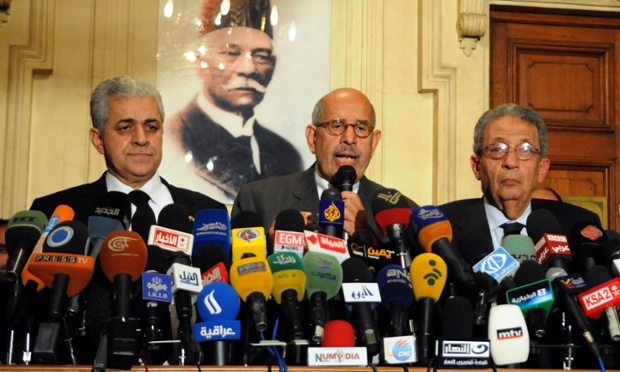The Giza Criminal Court sentenced Saturday one defendant to death and another to life in prison, for forming a terrorist cell and possessing explosives intended to be used for harming the state.
Mohamed Gamal Badawy was sentenced to death by hanging, while Mahmoud Fathy Al-Sayed was handed a life sentence. Both defendants were given a preliminary death sentence at their last hearing.
The decision by presiding Judge Moataz Khafagi comes after the consultation with the state’s Mufti. As per Egyptian law, the Mufti has to give his religious opinion on death sentences before they can be finalised, though his opinion is not binding.
The case is part of a crackdown on perceived militants by the state. The government does not differentiate between the Muslim Brotherhood, which it branded a terrorist organisation last year, and other extremist groups.
Hundreds of Islamists were killed and thousands arrested following the ouster of Mohamed Morsi by then-army chief, now-president Abdel Fatah Al-Sisi.
Since then, hundreds of alleged Muslim Brotherhood members have received preliminary death sentences in speedy mass trials, widely condemned by international rights groups and governments.
The Egyptian authorities maintain that the judiciary is independent and that defendants are granted due process, insisting that the trials adhere to international standards.
The government has used a growing insurgency in the Sinai, as well as increasing attacks in Cairo and other urban areas, as justification for its crackdown on Islamists and other opposition groups.
Al-Sisi recently vowed tougher security laws, and expediting judicial procedures to implement sentences against “terrorists” faster. These comments came at the funeral of Prosecutor General Hisham Barakat, who was assassinated in a Cairo explosion last week.
Egypt has been struggling to quell an insurgency in North Sinai since early 2011, shortly after the ouster of former president Hosni Mubarak.
The violence surged following the ouster of Morsi, who was deposed by the military after mass protests against his turbulent year in power.

